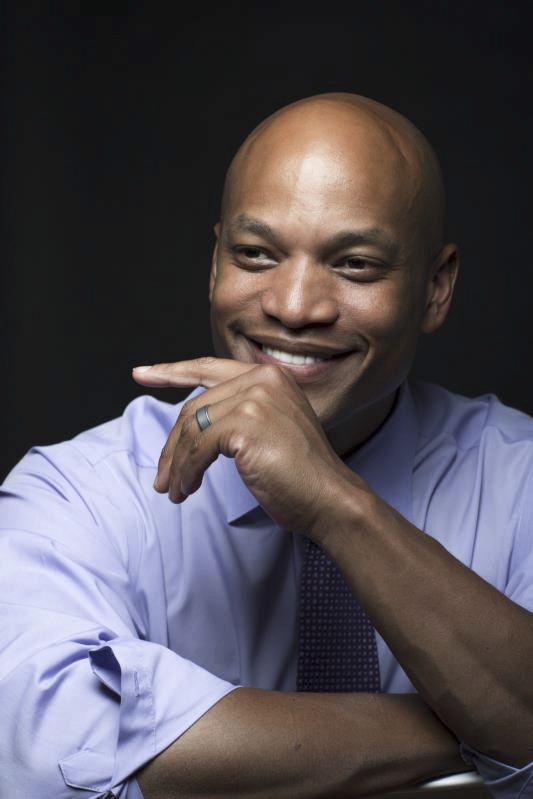SARA TOTH – EDITOR

Wes Moore is no stranger to Chautauqua. He first spoke as part of the Institution’s programming in 2012, when his book The Other Wes Moore was a Chautauqua Literary and Scientific Circle selection.
He returned in 2013 to deliver a morning lecture on the juvenile justice system, and again in 2015 for a lecture on youth advocacy. In 2016, he gave yet another solo lecture, and then interviewed retired four-star Gen. David H. Petraeus, during a week on “War and Its Warriors.”
And at 1 p.m. EDT Friday, Aug. 6 on the CHQ Assembly Video Platform, Moore will present the Week Six installment of the 2021 African American Heritage House Speaker Series, speaking to the theme of the week, “Building a Culture of Empathy.” His return will be the first virtual program he’s participated in for CHQ Assembly.
“(Chautauqua) isn’t about learning,” he told the Daily in 2015. “It’s about acting.”
Erroll Davis, president of the African American Heritage House, said Moore was a “natural fit” for the week, given the “raison d’être of The Other Wes Moore and the pure empathy shown in that work.”
The Other Wes Moore: One Name, Two Fates follows both Moore and another young man, also from Baltimore, with the same name. In December 2000, The Baltimore Sun ran a small piece about Moore receiving a Rhodes Scholarship; it also ran a series of articles about four men who had allegedly killed a police officer in a botched armed robbery. Two had gone on the lam — one of them was named Wes Moore.
The book traces the pivotal moments in each of the men’s lives, and how their choices led them down strikingly different paths.
Moore is currently a candidate for governor of Maryland, and in May stepped down from his role as the chief executive officer of Robin Hood, one of the largest anti-poverty organizations in the nation.
Prior to his time at Robin Hood, he was CEO at BridgeEdU, an education platform based in Baltimore addressing the college completion and job placement crisis by reinventing freshman year for underserved students.
He is a bestselling author of several books (The Other Wes Moore has been optioned by executive producer Steph Curry to be made into a movie), a combat veteran, and a social entrepreneur.
Moore graduated Phi Theta Kappa from Valley Forge Military College and Phi Beta Kappa from Johns Hopkins University, and he was a Rhodes Scholar at Oxford University.
He served as a captain and paratrooper with the U.S. Army’s 82nd Airborne Division, including a combat deployment to Afghanistan. He later served as a White House Fellow to Secretary of State Condoleezza Rice.
Davis said Moore’s presentation will open with a short talk in which Moore will define empathy, and share a story about his grandfather, who was driven from the country by the Ku Klux Klan, returning to Jamaica, before ultimately coming back to the United States.
“It’s a story of resilience, and of his grandfather’s struggle, yet love, for his country that he had communicated to Wes,” Davis said.
Following Moore’s brief presentation, the program will segue into an interview between Moore, Davis and Ernest Mahaffey, who serves on the AAHH board of directors. Like Moore, Mahaffey also served in the military, and Davis said the three will reflect on questions like “How can military leaders be empathetic without seeming soft? What role does empathy play in leadership?”
The three will also discuss Moore’s last visit to Chautauqua, in which he and Petraeus undertook the 22-Pushup Challenge — side by side on the Amphitheater stage — completing 23 pushups to raise awareness of veteran suicide. At the time, between 20 and 22 veterans took their lives every day in the United States. The two veterans completed their 22 push-ups, and did one more “for the big ranger in the sky,” Petraeus said that day.
Today’s will be a wide-ranging conversation, rooted in the theme and definition of “empathy.” It’s a concept Moore touched on in an interview with CNBC shortly after he announced he was leaving Robin Hood, in which he described his work as a leader of a “change organization.”
“That’s really how I think and how I hope that as a larger community, a larger society, we continue to think about this work,” he said. “Because we’re not doing this through a sense of sympathy. We’re doing it from a sense of empathy, where we understand that other people’s pain should be ours.”




